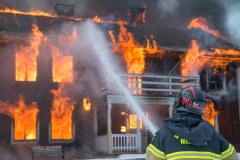Table of Contents
Property Insurance Best Pricing For Home Owners

Liability insurance in Protector Insurance also covers the legal costs of defending personal injury lawsuits – a valuable feature because Property Insurance the legal defense costs of these cases are commonly much greater than the ultimate award of damages, if any.
Common Coverage For Homeowners Property Insurance
The following list describes the three levels of coverage available for primary policies Property Insurance, all of which include liability coverage. Many insurance companies offer competitive insurance packages especially designed to meet the needs of rental property owners, so remember to shop around.
Basic coverage: Most companies offer a basic coverage package that insures your property against loss from fire, lightning, explosion, windstorm or hail, smoke, aircraft or vehicles, riot or civil commotion, vandalism, sprinkler leakage, and even volcanic eruptions.
This coverage often doesn’t include certain contents, such as boilers, equipment, and machinery unless specifically added as an endorsement. Based on the type of property you have, you may need to consult with your insurance agent about additional coverage that may be beneficial.
But just because you own a small retail strip center with a couple of plate glass windows doesn’t mean you need to have the special coverage that’s offered. Insurance companies often have minimum policy premiums, so certain insurable items and acts aren’t worth insuring because the potential for a claim is minimal and the costs are high.
Broad-form coverage: You get the basic package, plus protection against losses of glass breakage, falling objects, weight of snow or ice, water damage associated with plumbing problems, and collapse from certain specific causes.
Special form: This Property Insurance coverage is the broadest available and covers your property against all losses, except those specifically excluded from the policy. It offers the highest level of protection but is typically more expensive.
A Homeowners Policy Pays Owners for Losses in Two Ways Property Insurance
Actual Cash Value:
The coverage pays the cost of replacing property less physical depreciation. The standard policies most insurance companies offer provide Property Insurance for actual cash value coverage only.
Replacement Cost:
This coverage pays the cost of replacing the property without subtracting for physical depreciation. You must specifically have an endorsement and pay extra for replacement cost coverage. However, we do encourage you to purchase it.
As with homeowners’ insurance policies, the location, age, type, and quality of construction of your property are significant factors in determining your insurance premiums. Be sure to get an insurance estimate before you buy your property to avoid unpleasant surprises (older properties with wood shake shingles located away from fire protection may not even be insurable, for example) and realize the benefits of lower risk properties. For example, newer commercial buildings, and even some residential properties, were constructed with fire sprinklers and alarms that reduce your insurance premiums – so do as monitored intrusion alarms).

For example, if you carry only $1 million in coverage when you should have $2 million, you’re only carrying 50 percent of the minimum required insured value. If the building suffers a loss, the insurance company pays only 50 percent of the loss.
Many rental property owners first become investors by renting out their former personal residences when they buy new homes. They may not realize they should immediately contact their insurance agent and have their home- owners policy converted to a landlord’s policy, which contains special cover- age riders that aren’t in the typical homeowner’s policy.
Because of the increased liability risk for rental properties, some insurance companies may not even offer this coverage, whereas others specialize in this business. Either way, obtain proper landlord’s coverage for your rental property, or you may face the possibility of having your claim denied.
If you own investment or rental properties, consider:
A single insurance policy that covers all locations: Rather than have separate policies for each rental property, you can get better coverage with a single policy. For example, if you currently have three properties each with a $1 million policy, you could get a single policy with a $3 mil- lion limit at a more competitive cost.
An aggregate deductible: An aggregate deductible is the portion of your loss that you essentially self-insure, because the losses at any of your three properties can go toward meeting the aggregate deductible.
Excess liability (umbrella) coverage
Excess liability (umbrella) coverage can be a cost-effective way to dramatically increase your liability protection and is designed to supplement your main or basic policies. An umbrella policy provides both additional and broader coverage beyond the limits of the basic commercial general liability insurance and other liability coverage and this coverage is only available after the primary policy limits have been exhausted property insurance.
Your primary policy may have liability limits of $500,000 or $1 million, but an umbrella policy can provide an additional $1 million in vital coverage at a cost of $2,000 to $4,000 per year. Depending on the value of your property and the value of the assets you’re seeking to protect, buying an umbrella liability policy with higher limits may make sense.
Umbrella policies are available in increments of $1 million with even lower rates per dollar of coverage as the limits go higher. The most common umbrella coverage amount for the owners of large investment properties now is $5 million at an annual cost of approximately $7,500 to $12,000.
Purchase your umbrella policy from the same company that handles your underlying primary liability insurance package Property Insurance. The reason: If you have two different insurers rather than just one, the companies may have different agendas if legal problems arise.

There are Twelve types of Property Insurance coverage
- Replacement cost coverage: Replacement cost coverage is the type of Property Insurance that will always make sure that the cost of your property assurance is being paid regardless of downfall or increasing of currency. Replacement cost coverage is made easy so that property insurance client, spend less money to get new same type of product that the assurance company does not consider to pay.
- Explosion Insurance: Explosion allowance coverage is a kind of insurance policy one needs to have, this kind of a insurance is designed to protect and cover the loss of property due to explosion.
- Fire Insurance: This is a type of property allowance that basically concentrated to damages caused by a fire. Fire assurance coverage provides the protection for damage caused by a fire into your property.
- Aircraft Insurance Coverage: Aircraft allowance coverage is kind of insurance that deals or designed to protect your property in case the Aircraft crush on your property.
- Home Insurance: Home provision covers both property and liability, using single premium which covers for all risks. Home Insurance is also known as multiple line insurance coverage, it covers private homes also bond’s various types of personal
- Theft Insurance: Theft insurance is the kind of property coverage that covers the damage of the property due to burglary, theft etc.
- Riot/Civil commotion: This is a type of property coverage that protect or covers your property from the damage caused by the Riot. It covers the cost caused in violent disturbance caused by four or more people in your property. types of provision include an aspect of liability coverage.For example, a homeowner’s insurance policy will normally include liability coverage which protects the insured in the event of a claim brought by someone who slips and falls on the property; automobile insurance also includes an aspect of liability provision that indemninate against the harm that a crashing car can cause to others’ lives, health, or property.
- Volcanic Eruption: Volcanic Eruption is a kind of property provision that covers your property against the explosion caused by Volcanic Eruption.
- Hail Insurance: Hail Insurance coverage is a kind of insurance cover that protect your property against losses due from hail.
- Hurricanes: Hurricanes Insured coverage is the kind of insurance that is designed to cover or protect your property against the losses caused by hurricane.
- Flood Insurance: Flood Insurance coverage is a kind of Property Insurancemade to cover your property from the damage caused by floods into your property.
- Earthquake Insurance: This is a kind of property allowance that is design to cover the damage that has been caused by an earthquake to your property. Rates differ rates are determined on the location you are situated in. Homes made of wood have cheaper rates than Homes made of brick Property Insurance.
Learn more about: Business Insurance

Call Protector Insurance today!
843-707-7504




